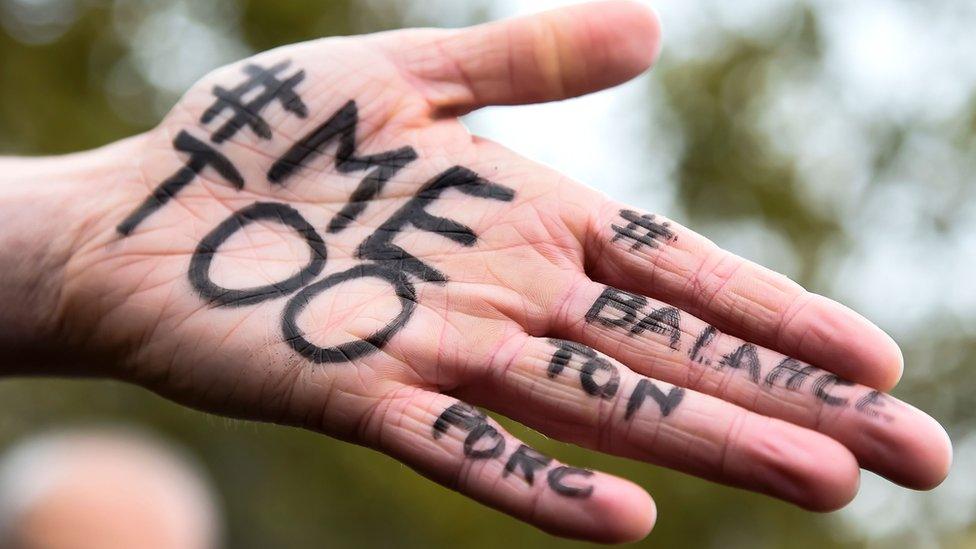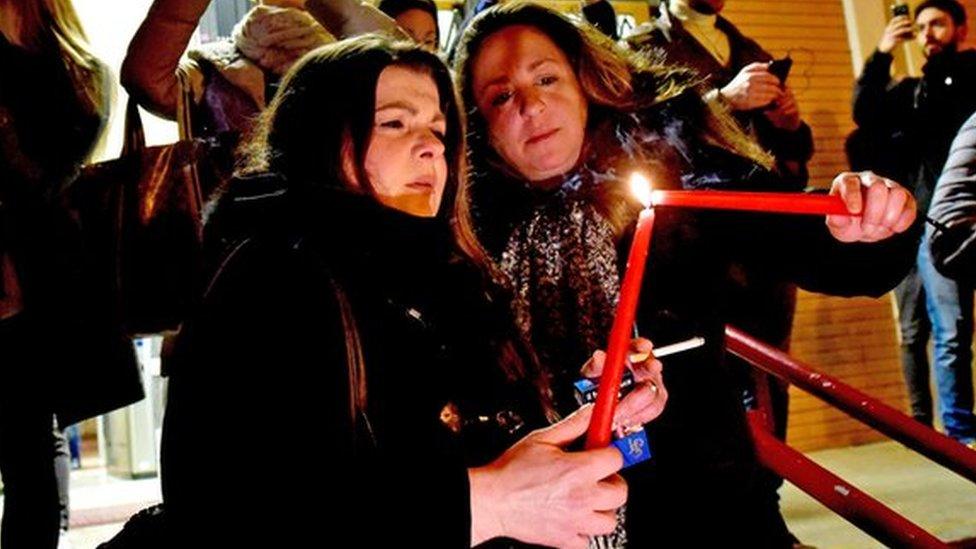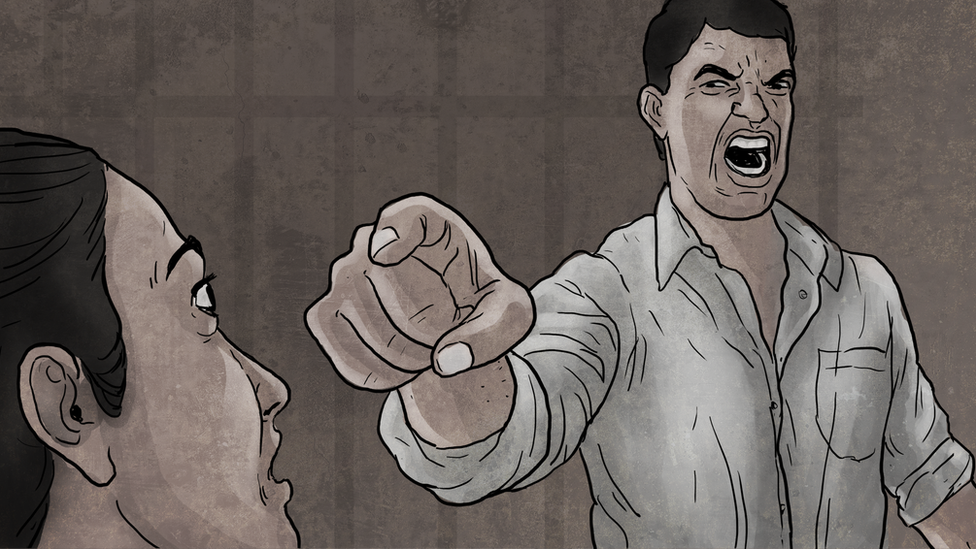‘Consent condoms’ and 'anti-rape wristbands': Do they work?
- Published

From "consent condoms" in Argentina to anti-date rape wristbands in Germany, products designed to tackle sexual assault have been making headlines around the world.
They are part of a growing industry of self-defence inventions aimed predominantly at women.
Other products include shorts fitted with an alarm; a bracelet that releases a "foul smell" to fend off sexual predators; and several sexual consent apps.
With statistics showing that about one in five women in England and Wales have experienced sexual assault since the age of 16,, external and similar figures reported elsewhere, the makers of such products argue that they have a vital role to play.
But while they may be "well intentioned", such products miss the mark, some women's rights advocates say.

Some of the products around the world
Consent pack: Condoms released by Argentine company Tulipan, aimed at promoting consent. It takes four hands, or two people, to open the box containing the condoms.
Xantus: A wristband created by German inventors aimed at tackling date rape by showing the user if their drink has been spiked. Green circles on the wristband react to drops of the drink by changing colour if a drug has been added.
Invi bracelet: A bracelet launched by a Dutch company that can be tugged by the wearer to release a "foul smell" aimed at deterring potential perpetrators.
LegalFling: Developed in the Netherlands, the app allows people to request and verify explicit consent before having sex.

"If they don't say yes, it means no", external reads the tagline (in Spanish) alongside Tulipan's new brand of "consent condoms", which take four hands to open.
The makers of the German wristband Xantus, which has a section that reacts to liquid containing so-called "date rape" drugs by changing colour, were inspired to create the product after a friend had a drink spiked.
"Xantus wants to make the celebrations safer and help you protect yourself,", external the company says on Facebook (in German).
But do these products work?
Some women's rights advocates say that the products may not help prevent rape.
"They won't prevent rape and won't prevent the need to have a change in attitudes and behaviours," Anna Blus, Amnesty International researcher on Western Europe and women's rights, told the BBC.
"Women get raped no matter what they do, no matter what precautions they take… It doesn't matter how they try to protect themselves."
Efforts should instead be focused on stopping perpetrators, she said.
"It should not be on us as women to constantly police our behaviours and be thinking about these tactics. It should be about preventing rape on the side of the perpetrators."
Katie Russell, spokeswoman for Rape Crisis England and Wales, agreed.
She told the BBC that while she did not doubt the "good intentions" of the people making the products, "there are a number of issues with them".
'Educate on consent'
She noted that they are often aimed at preventing sexual violence from a stranger, despite the fact that the vast majority of people who are sexually assaulted know the perpetrator.
Other concerns include the issue of making money on the back of "legitimate fears of rape and sexual violence" and putting the onus on the potential victim, she said.
"Ultimately, no product can really prevent or end sexual violence.
"Where we need to focus our efforts is on education on what consent is, on sending very clear messages to perpetrators that this behaviour will not be tolerated."
Academics told the BBC they were not aware of any firm evidence on the effectiveness of such products.
But Therése Skoog, a psychology professor at Sweden's University of Gothenburg, says that if they are to play a role, it is likely to be "of smaller rather than greater importance".
- Published12 April 2019

- Published21 September 2018

- Published10 February 2019
